#내리다
Explore tagged Tumblr posts
Text
한국 전래동화에 나오는 어회와 문법 ! - Vocabulary and grammar in traditional Korean fairytales !
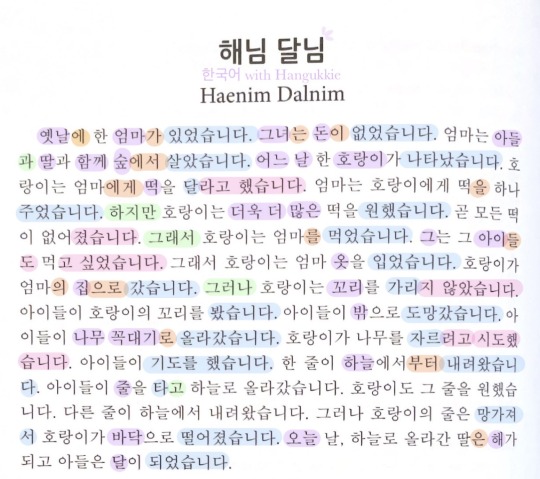
English Translation:
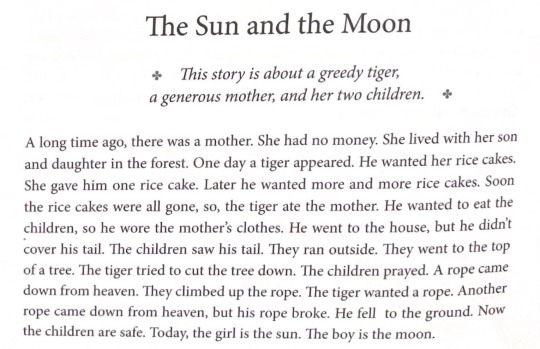
———————————————————
Vocabulary:
옛날 - Olden days
옛날에 - Once upon a time
어머니/엄마 - Mum
그녀 - She/Her
돈 - Money
아들 - Son
딸 - Daughter
함께 - Together
숲 - Forest
어느 - Which
날 - Day
호랑이 - Tiger
떡 - Rice cake
더욱 더 - More and more
많이/많은 - Many/A lot
그 - He/Him
아이 - Kid/Child
아이들 - Kids/Children
옷 - Clothes
집 - House
꼬리 - Tail
밖 - Outside
나무 - Tree
꼭대기 - The top
하늘 - Sky
줄 - Rope
바닥 - Floor
오늘 - Today
해 - Sun
달 - Moon
Grammar - Verbs:
있다 - To exist
없다 - To not exist
살다 - To live
나타나다 - To appear
달다 - To ask/To request (In this context)
주다 - To give
원하다 - To want/To wish/To desire
먹다 - To eat
가다 - To go
가리다 - To cover
보다 - To see
도망가다 - To run away
올라가다 - To go up
자르다 - To cut
기도를 하다 - To pray
내리다 - To get off
떨어지다 - To fall
된다 - To become
Grammar - Sentence Forms:
라고 하다 - For indirect quotations
지다 - To become
도 - Too/Also/As well as
고 싶다 - To want
지 않다 - Is not
려고 - To intend to
시도하다 - To attempt to
Grammar - Connectives:
과 - And/With (With 받침)
하지만 - But
그래서 - So
그러나 - But/However
하고 (고) - And/With
Grammar - Markers/Particles:
에 - To/At (Location and time marker)
가 - Subject particle
는 - Topic particle
이 - Subject particle (With 받침)
에서 - At/In/On/From (Location marker)
에게 - To/For
을 - Object particle (With 받침)
를 - Object particle
들 - Plural marker
의 - Possessive marker
으로 - By/As/For/To/Towards/With (Directional marker)
로 - By/As/For/To/With (Directional marker - with 받침)
부터 - From/Since (Location and time marker)
은 - Topic particle (With 받침)
#korean language#korean langblr#korean#langblr#korean study blog#korean studyblr#study blog#studyblr#korea#korean vocab#korean vocabulary#korean vocab list#Korean stories#Korean fairytales#Korean folktales#korean folklore#한국#한국어#한국어 공부#한국어 읽기#한국어 어휘#한국어 단어#한국어 문법#공부#읽기#어휘#단어#문법#한국 전래동화#전래동화
446 notes
·
View notes
Text
K-Pop Breakdown: "흐린 가을 하늘에 편지를 써" by 김광석
여러분 안녕하세요! I recently got a request to breakdown this song, so here it finally is! You can find the Korean lyrics and listen to the song here, and I also referred to this page and Naver Dictionary to help me out with the English translations.
Vocabulary
비가 내리다 = to rain; rain falls
둘러싸다 = surround; encircle
숨결 = breath
떨치다 = to shake off; to break free from
잊혀지다 = to be forgotten
접어놓다 = to put away
창문 = Window
흐리다 = overcast; murky; cloudy
가을 = autumn
편지를 쓰다 = to write a letter
바람이 불다 = wind blows
유혹하다 = to entice; to lure
Grammar
비가 내리면 음… 나를 둘러싸는 / 시간의 숨결이 떨쳐질까?
When it rains... will I break free from the breath of time that surrounds me?
-(으)면: If/When
Attach this to a verb stem to mean "if/when [verb]." 비가 내리면 means "if/when it rains."
-는
When attached to a verb stem, -는 turns a verb into its present-tense noun-modifying form. In other words, it allows you to describe nouns using verbs, like the way we use the word "that" in English. 나를 둘러싸는 시간의 숨결 means "the breath of the time that surrounds me." 둘러싸다 describes the noun, 시간의 숨결.
-(으)ㄹ까
This structure has a couple of different meanings, but in this case, it is used essentially to wonder out loud. The speaker is asking if he will break free from what entraps him.
난 책을 접어놓으며 창문을 열어 / 흐린 가을 하늘에 편지를 써 / 음…잊혀져간 꿈들을 다시 만나고 파
I set aside my book and open the window / I write a letter in the cloudy autumn sky...I want to meet the forgotten dreams again.
-(으)며
This structure is one way to say "and," although it can be translated differently as well. It can mean "while," as in, "while putting aside my book I open the window" too.
-고 파
This is a shortened version of -고 싶다, which means "to want [to do something]." 만나고 파 means "I want to meet [someone/something]."
That's about it for this breakdown--thanks for reading and thanks to the anon for your patience with this request! Check out my other breakdowns here and feel free to request any other song that I haven't done yet! See you in the next lesson! 화이팅!
My masterlist
Join my Discord chat here to practice Korean with others!
Follow me on Instagram here for more Korean content!
Check out my Ko-Fi to support this blog and my studies! Thank you for your generosity!
#korean#korean language#korean langblr#langblr#한국어#apok#korean grammar#korean lagblr#kpop#kpop lyrics#한국어 배우기#한국어 공부하기
63 notes
·
View notes
Text
엄마 안녕.
벌써 엄마와 이별한 지 1년이 됐어. 시간 참 빠르네. 작년의 어제까지만 해도 엄마가 살아 있었다는 게 이제는 꿈 같은 이야기가 됐네. 여전히 보고 싶고, 여전히 미안하네. 아무는 데 시간이 좀 걸리는 일인가봐. 언제쯤이면 엄마를 만나러 갈 때 웃을 수 있을지 모르겠다. 아직까지는 착잡해.
잘 지내고 있나 모르겠네. 더는 아프지 않아서 다행인 것 같기도 하면서 한편으로는 다른 고통이 있지 않나 싶어 걱정이 된다. 엄마를 괴롭히던 암덩어리들이 다른 방식으로 엄마를 아프게 하는 건 아닌가 몰라. 지켜보고 있다면 알겠지만 나는 지난 1년 간 잘 지내지 못했어. 하루에도 수십 번씩 무너지는 마음은 아직도 여전하네. 엄마는 내가 잘 살기를 바라겠지? 그럴 거라 믿고 힘내는 중이야.
1년 전 오늘은 세상이 반으로 접히는 기분이었어. 반으로 접힌 세상에 내 몸도, 마음도 전부 반으로 접혀서 제대로 일어설 수가 없었지. 정신 차려 보니 하나 둘 조문객들이 모이기 시작했어. 모두 우리에게 위로의 말들을 건넸지만 사실 와 닿지는 않았어. 엄마가 더는 세상에 없다는 사실을 받아들이지 못했거든. 아직도 가끔은 엄마가 세상에 있는 것만 같아.
엄마를 보러 가려는데 궂은 날씨가 야속하더라. 비가 내리다 눈이 내리고 도로는 공사 중이라 진흙을 밟아가면서 올라갔지. 엄마 많이 춥겠더라. 그래도 우리가 가서 조금은 온기가 향했기를 바라. 봄, 여름, 가을에는 경치도 좋아서 괜찮았는데 눈 내리는 겨울에 가니 많이 시리겠더라. 춥지 않게 자주 갈게.
엄마가 진짜로 왔는지 모르겠지만 일요일 밤에 내 꿈에서 닭강정을 먹고 싶다고 했었어. 꿈에서 깨자 마자 엄마가 좋아했던 신림 꿀벌닭강정이 아직 장사를 하는지 검색했더니 폐업했더라고. 아쉽다. 되는 대로 시장에서 사갔는데 마음에 들었나 모르겠네. 먹어본 적 있는 가게 닭강정인데, 엄마가 좋아하던 맛이랑 비슷해. 앞으로도 종종 사서 갈게.
어떻게 1년이 지나갔는지도 모르겠어. 반쯤 정신을 놓고 살다 보니 한 해가 다 지났더라고. 이제는 정신 차리고 살아보려 해. 엄마 없다고 아빠 심심하게 두지 않을게. 엄마랑 같이 못 가봤던 일본도 모시고 가서 아빠 좋아하는 맥주도 실컷 사드리고 올게. 엄마도 멀지만 가까운 곳에서 함께 할 거라 믿어.
엄마, 나 이제 잘 살아볼게. 엄마가 안 깨워줘도 잘 일어나고, 잘 챙겨 먹고, 부지런히 살아볼게. 엄마 없이도 잘 산다고 너무 서운해하지는 말아줘. 다 엄마가 그리워서 하는 거니까. 여전히 보고 싶고 쓰리다.
영원한 나의 사랑, 조만간 또 편지로 만나자.
104 notes
·
View notes
Text
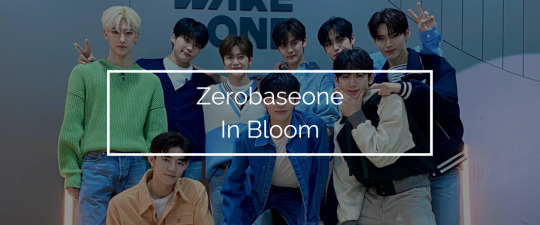
피다 (to bloom)
봄 (spring)
아름답다 (to be beautiful)
마음속 (in the heart)
비가 내리다 (to rain)
눈이 내리다 (to snow)
따뜻하다 (to be warm)
상상하다 (to imagine)
사라지다 (to disappear)
숨죽여 (quietly)
꿈꾸다 (to dream)
기다리다 (to wait)
빛나다 (to shine)
사랑하다 (to love)
희망 (hope)
여름 (summer)
가을 (autumn)
겨울 (winter)
속삭이다 (to whisper)
향기 (fragrance)
새롭다 (to be new)
추억 (memories)
잊다 (to forget)
자유롭다 (to be free)
세상 (world)
기억하다 (to remember)
미소 (smile)
비바람 (rainstorm)
멀리 (far)
함께 (together)
나무 (tree)
달리다 (to run)
날개 (wings)
피난처 (refuge)
마음 (heart)
Official Music video
Suggest a song
#Learn#Learning#Language Learning#korean#studyblr#study#koreanblr#langblr#vocabulary#vocab#words#studying#language#Vocabulary#Vocab#Kpop#Words#KVocab#Zerobaseone#In Bloom
92 notes
·
View notes
Text





“비가 내리다 말다 우산을 챙길까 말까”
풀킴 - 🌧️비 🎵
17 notes
·
View notes
Text
Phrases of the Week #5
우물쭈물할 시간이 없다: there’s no time to lose
서둘러요, 우물쭈물할 시간이 없어요. Please hurry up. There's no time to lose.
순식간에: in the blink of an eye, in an instant
5년이란 세월이 순식간에 흘러갔다. Five years flew by in a flash.
그것은 순식간에 일어난 일이었다. It all happened in an instant.
하는 수 없이: with no other choice, unavoidably
비가 너무 많이 와서 우리는 하는 수 없이 소풍을 취소했다. It rained so hard that we unavoidably canceled the picnic.
하는 수 없이 사실을 털어놓고 말았다. I had no choice but to tell the truth.
이빨을 드러내다: to bare your teeth
개가 이빨을 드러내며 으르렁거렸다. The dog bared its teeth and growled.
어린 사자는 이빨을 드러내고 하품을 했다. The young lion opened its jaws in a teeth-baring yawn.
꼬리를 내리다: to keep a low profile, take a submissive attitude
(lit. to lower your tail)
그 남자는 매니저가 누구의 말도 들으려 하지 않는 걸 보고 꼬리를 내렸다. The man, seeing that the manager wouldn’t listen to anyone, took a submissive attitude.
그는 꼬리를 내리고 기회가 오길 기다렸다. He kept a low profile and waited for the opportunity to present itself.
5 notes
·
View notes
Text
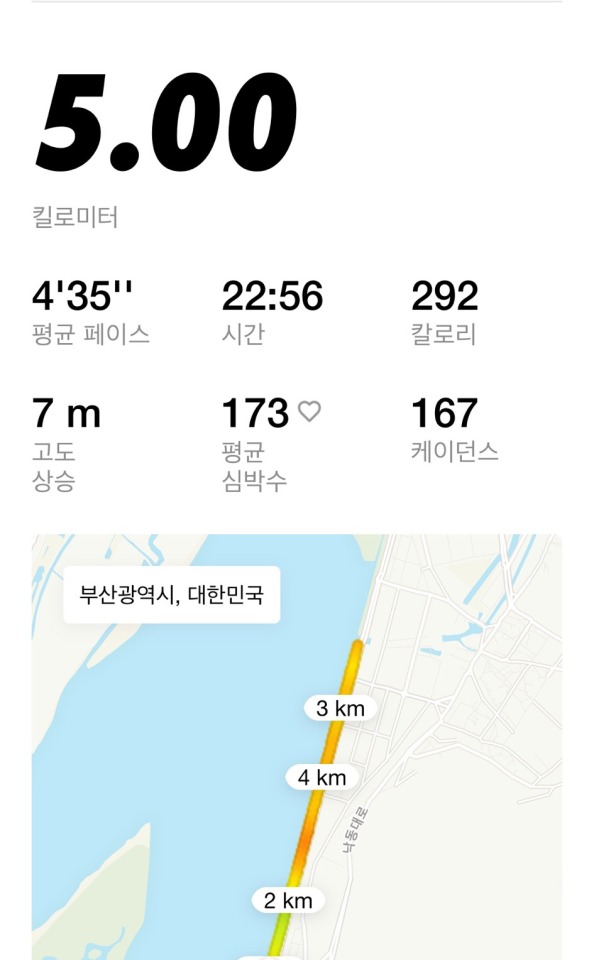
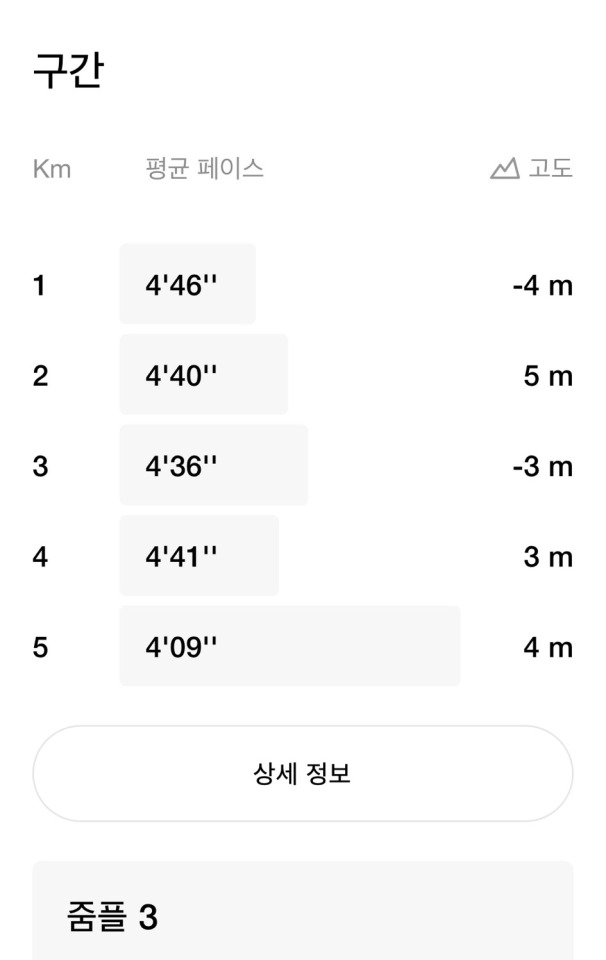
며칠 쉬려다 몸이 찌뿌둥해서 달리러 나갔다. 비가 안오길래 나왔더니 보슬비가 내리다 말다 했다. 강변에 도착했다. 강변 산책로는 침수 위험으로 출입 금지 현수막과 펜스가 쳐져있었다.
도로변 자전거 도로로 달렸다. 자전거가 띄엄띄엄 지나가다 말다 했다. 비가 와서 아무도 없는 줄 알았는데 달리다보니 어른들이 운동하러 많이 나오셨다. 한 열댓분을 이상은 본 건 것 같은데, 딱 한 분 빼고 모두 출입금지 펜스를 뚫고 강변 산책로로 내려간다.
비가 많이 오지도 않고 대충 눈으로 봐도 그닥 위험해 보이진 않는다만.. 굳이 막아놓은 길을 숙이고 넘어 내려가는 모습을 보며 저걸 막고 관리하는 사람도 어지간히 골치 아프겠다~ 싶었다.
7 notes
·
View notes
Video
youtube

사랑을 했다 우리가 만나 지우지 못할 추억이 됐다 볼만한 멜로드라마, 괜찮은 결말 그거면 됐다, 널 사랑했다 우리가 만든 love scenario 이젠 조명이 꺼지고 마지막 페이지를 넘기면 조용히 막을 내리죠 We were in love. We met. It became an unforgettable memory A melodrama worth watching, a good ending That's enough, I loved you The love scenario we created Now, the lights are turned off When we turn the last page Let's quietly close the curtains - iKON - 사랑을 했다 (LOVE SCENARIO) - ✏️ 𝐕𝐨𝐜𝐚𝐛𝐮𝐥𝐚𝐫𝐲: 사랑 (n): love 사랑하다 (v): love 만나다 (v): meet 지우다 (v): erase, wipe off 추억 (n): memory 볼만하다 (adj): worth seeing, enjoyable to watch 멜로드라마 (n): melodrama 괜찮다 (adj): nice, fine 결말 (n): ending, outcome 만들다 (v): make 조명 (n): lighting 이제 (n): now 마지막 (n): last 꺼지다 (v): go out, stop 페이지 (n): page 넘기다 (v): pass (on), turn over, exceed 조용히 (adv): quietly 막 (n): curtain 내리다 (v): fall, descend, go down ✏️ 𝐆𝐫𝐚𝐦𝐦𝐚𝐫: 1. V + 지 못하다 = cannot/ to be unable to do (something) E.g. 지우지 못하다 = cannot erase
2. V/A + 은/는/을 N = N that A/V ~noun modifier E.g. 볼만하다 (worth seeing) + 멜로드라마 (melodrama) = 볼만한 멜로드라마 (melodrama that worth seeing)
3. (으)면 되다 = (으)면 되다 = can, it's ok to (do something) E.g. 그거면 되다 = it’s okay like that
4. (으)면 = when. If ~ express a supposition or a condition about a fact E.g. 마지막 페이지를 넘기면 = when you turn the last page
🌸 🌼 🌻
Support me at: https://koreanlanguageloving.my.canva.site/
#Korean Language#korean langblr#Korean Quotes#Korean Phrases#Korean Songs#Kpop Songs#love scenario#ikon#Learn Korean#Study Korean#learning Hangul#한국어공부중#한국어공부해요#한국어공부하기#한국어공부#한국어 배우기#한국어 단어#한국어배우기#한국어 문법#한국어
14 notes
·
View notes
Text

令
if you'd like to support me, check out my ko-fi!
character story:
When a 人인 person is powerful and honorable , you 龴 kneel before them to hear an order.
Study vocab here!
Vocab:
命令 명령* command
command x order
口令 구령* verbal order
mouth x order
指令 지령 order
point x order
指令 지령을 내리다 issue an order
令狀 영장 warrant
order x document
令狀 구속영장 arrest warrant
arrest x order x document
令監 영감 old man
order x oversee
令夫人 영부인 esteemed wife
honorable x wife
*can add 하다 to make a verb form
**can add 이다 to make an adjective form
#5lvl#family: person#人#龴#令#ling4#alt:#korea#korean#korean language#korean learning#hanja#korean study#study korean#korean vocabulary#korean langblr#hanja vocab#hanja vocabulary#korean vocab#langblr#language#chinese characters#studyblr#original#ajaajahanja
15 notes
·
View notes
Text
Past tense 과거 시제
You’ll get the rule, examples and practices to do
Polite form: Verb stem +았/었/였+어요
Very polite: Verb stem +았/었/였+습니다
Casual: Verb stem +았/었/였+어
Verb stem : verb - 다
★필요하다: To need 필요하
★내리다 : To get off 내리
★(잠을) 자다 : To sleep 잠을 자
★결혼하다: To get married 렬혼하
★보이다: To be seen, to be visible 보이
★바꾸다 : To change 바꾸
★놀다: To play, to hang out 놀 … 등
~If the verb stem's last vowel is ㅏ or ㅗ : then 았어(요) is used
Examples (예문) :
★만나다 ( to meet)=>만나 만났어요
저는 지난 주말에 친구를 만났어요 I met my friend last weekend
★가다 (to go)=> 가 갔어요
저는 카페에 갔어요 I went to the café
★오다 (to come)=> 오 왔어요
집에 왔어요 I came home
~If the verb stem's last vowel is Not ㅏor ㅗ: then 었어(요) is used
Examples (예문) :
★주다 (to give)=>주 줬어요
아빠가 저한테 선물을 줬어요 My dad gave me a gift/ a present
★마시다 (to drink)=> 마시 마셨어요 (마시+었어=마셨어 )
커피를 마셨어요 I drank coffee
★먹다(to eat) => 먹 먹었어요
딸기 케이크를 먹었어요 I ate strawberry cake
★웃다 (to smile, to laugh ) => 웃 웃었어요
친구가 웃었어요 My friend smiled
★보이다 (to be seen, be visible ) =>보이 보였어요
그 케이드라마에 한국 음식이 맛있게 보였어요 Korean food looked so delicious in that kdrama
~If the verb stem ends with 하 you add 였어요 (하+였어요 =했어요) To put it simply 하changes to 해
Examples (예문) :
★사랑하다 (to love)=> 사랑하 사랑했어요
저는 너를 사랑했어요 I loved you
★요리하다 (to cook) => 요리하 요리했어요
저는 점심을 요리했어요 I cooked lunch
★공부하다 (to study)=> 공부하 공부했어요
하루종일 한국어를 공부했어요 I studied korean all day
~So how can we turn the past tense to formal?
Verb stem +았/었/였+습니다 Instead of 어요, (Verb stem +았/었/였+어요) we replace it with 습니다
★필요하다: To need 필요했습니다
★내리다 : To get off 내렸습니다
★잠을 자다 : To sleep 잠을 잤습니다
★결혼하다: To get married 렬혼했습니다
★보이다: To be seen, to be visible 보였습니다
★바꾸다 : To change 바꿨습니다
★놀다: To play, to hang out 놀았습니다
Practice (연습) :
★I ate an apple
먹다: To eat 저는 사과를 …..
★Last week I drank water every morning
마시다: To drink 지난 주에 저는 맨날 물을 …..
★I drove a car
운정하다:To drive 저는 차를 …..
★I gave present to my friends
주다:to give 저는 제 친구에게 선물을 …..
★I studied korean
공부하다 :To study 저는 한국어를 ….
★I woke up and then I drank water
일어나다: To get up, to wake up 물을 마시다:To drink water 저는 ….
★I studied math and then slept
수학을 공부하다: To study math 잠을 자다: To sleep 저는….
★I drank milk and I ate fruits
우유 마시다: To drink milk 과일을 먹다:To eat fruits 저는…..
Support me at: https://ko-fi.com/koreanwithhaneul
#korean#korean with haneul#hangul#korean conjugaison#korean conversation#coréen#apprendre#bts army#korean alphabet#korean vocabulary#korean vocab list#korean vocaloid#korean study notes#korean study blog#korean blog#korean language#learn korean#korean learning#korean lesson#korean langblr#korean sentence#korean studies#korean studygram#study korean#studystudystudy#learnkorean#learning korean#language study#studykorean#study space
10 notes
·
View notes
Text

[WEVERSE, 230610] DOKYEOM 🌟
비가 내리다 말다~☔️
#dk#dokyeom#seokmin#lee seokmin#lee dokyeom#seventeen#svt#era: fml#media: photos#source: weverse#230610
5 notes
·
View notes
Text
Confusing compound verbs (보다)
I think one of my struggles with Korean language up until now is similar compound verbs. I think the way I learn vocabularies doesn’t work well with these stuff so I tried to (roughly) gather them altogether and analyze them.
P.S. All the example sentences are taken from Naver dictionary
1. 올려다보다 = to look up
comes from 올리다 (to raise, to lift up), 오르다 for the intransitive counterpart
밤하늘을 올려다보다 Gaze up at the night sky
2. 내려다보다 = to look down
comes from 내리다 (to lower, to drop, to fall), it is both transtive and intransitive
그녀는 창문으로 거리를 내려다보았다 She looked down at the street from her window.
3. 들여다보다 = to look in(to)
comes from 들이다 (to let sb in), 들다 for the intransitive counterpart
그는 문을 열고 방 안을 들여다보았다 He opened the door and looked into the room.
망원경을 들여다보다 look through a telescope
4. 내다보다 to look ahead, to look out, to foresee
comes from 내다 (to bring out... at least, there are too many meanings for it), 나다 for intransitive counterpart
그는 멍하니 창밖을 내다보고 있었다 He was gazing (vacantly) out the window.
5. 둘러보다 = to look around
comes from 두르다 (to put sth around, to wrap[put] sth round). I’m not quite sure with this one
관광객들은 기념품 가게를 둘러보았다 Tourists browsed the souvenir shop.
나는 교실을 둘러보며 빈자리를 찾았다 I looked around the classroom for an empty seat.
Note that it’s the similar meaning as 두리번거리다
그녀는 신기한 듯 방 안을 두리번거렸다 She kept looking around inside the room curiously.
6. 돌아보다 = to look back
comes from 돌다 (to turn, to revolve), 돌리다 for the transitive counterpart
뒤를 힐끗 돌아보다 glance back
자신의 행동을 돌아보다 to reflect upon one's behavior
Notice that 1 - 4 have this weird ass 다 in the middle...
What does this mean? I don’t know.
Anyway, let’s take a look at some root verbs I mentioned above a little more.
1. 들이다 = to let sb in(to), to spend
낯선 사람을 함부로 집 안에 들이지 마라 Do not let a stranger into the house
2. 두르다 = to put sth around, wrap[put] sth round (르 Irregular!)
목에 스카프를 두르다 wrap a scarf round one's neck
Bonus: 들르다 = to stop by, to come by, to drop by
저녁에 들를게요 I'll drop by in the evening.
지나가는 길에 궁금해서 들렀어요 I dropped[called] in to see how you're doing.
돌다 vs 돌리다
This is personally the most annoying part for me because these two verbs are also related to lots of compound verbs. So let’s see the differences between these two by looking at their meanings
돌다 = to turn, to revolve, to go around, (for a machine) to work (Intransitive)
아이들이 나무 주위를 돌며 노래를 부르고 있다 Children are circling around a tree and singing.
역 앞에서 오른쪽으로 도세요 Turn (to the) right in front of the station.
그곳에 가려면 산을 돌아서 가야 한다 We have to go around a mountain to get there.
공장 안에는 기계들이 돌고 있었다 Machines were operating inside the factory.
I was a little confused why there’s 을/를 in the first and the third sentences if it’s an intransitive verb. Personally, I think it’s because the “subject” IS the one who is turning themselves (The children move, We move ourselves) but 을/를 shows an object that is passed, similar to を in Japanese(?)
돌리다 = to turn (sth), to operate (a machine), to change (Transitive)
문의 손잡이를 돌리다 turn the handle of the door
기계를 돌리다 work a machine
화제를 돌리다 change the subject [topic]
나한테서 등 돌리지 마세요 Don't turn away from me.
그녀는 동생이 어디 있는지 보려고 고개를 돌렸다 She turned her head to see where her sister was.
So what’s the point?
Well you see, I have a hard time choosing the correct one when it comes to compound verb, especially with the verb that have vague transitive/instransitive feels such as “to look back” 돌려보다? 돌아보다? Does turning my head counts as transitive action? something like that
Here are a list of verbs including 돌다 and 돌리다
돌아보다 = to look back
돌아다니다 = to get around, to go around
돌아다보다 = to look back
돌아가다 = to go back
돌아오다 = to come back
돌아들다 = to return, to come back
돌���눕다 = to turn
돌려보내다 = to return, to send back
돌려받다 = to get back
돌려주다 = to return, to give back
돌려놓다 = to turn, to change direction
돌려보다 = to have a look by turns, to pass around
From my speculation, I can think of it as whether the subject aka. the actor of the sentence moves or not.
You look back, YOUR head moves (You are the one who does the action of looking back)
You go back, YOUR body moves
You roll yourself (into bed for example), YOUR body moves
You send back a letter, THE LETTER moves (Your body doesn’t move instead, it’s the letter, the object of the sentence)
You give back the money, THE MONEY moves
You get your shoes back, THE SHOES move back to you
.
.
.
After thoughts.
I DO think that if you are already exposed to Korean media, this wouldn’t take any efforts to remember as it sticks to your head naturally. You probably have an idea what sounds right and what don’t. I’m only writing this as a guide for myself (and maybe for those who are struggling like me).
Though it’s good to know the meaning behind it, sometimes, you don’t really need an explanation for everything, so don’t always stick to it and... idk embrace it.
I hope this is helpful to anyone who happens to find this. I willl admit it, I am not a good writer myself, just a stupid college student struggling to learn languages, so there might be some parts that can be easily explained. And yeah, I’m trying to learn how to effectively use all the Tumblr’s text functions. Anyway, thank you for reading up until here! Hope you have a great day
2 notes
·
View notes
Text
30 Phrases Related To Wintertime and Winter Holidays🎄: vocabulary list
I'm more of a Christmas season hater than a lover because all the flashing lights anywhere and everywhere give me a terrible headache plus Christmas music isn't my cup of tea exactly... (just maybe if they wouldn't overplay the music in public spaces...).
That is why I wanted to try and make it more interesting and fun for myself by creating this list. Although I love dissecting Korean words one by one, this time I'm focusing on noun + verb expressions since I've found that learning little phrases is more helpful to language proficiency than learning single words by themselves. Hope this'll be useful to someone else as well 🌟
Environment | 환경
겨울이 다가오다 for the Winter to come
눈 덮인 나무 tree(s) covered in snow
눈이 오다/내리다/떨어지다 to snow/for the snow to fall
서리 내리다 to frost up/for the frost to fall
우박이 치다/내리다 for the hail to hit/fall down
온도가 내려가다 for the temperature to get lower
길이/도로가/보도가 미끄럽다 for streets/roads/pavements to be slippery
눈보라가 치다 for the blizzard to hit
눈보라를 맞다 to face [endure] a blizzard
난방을 시작하다 to start the heating
Activities | 활동
겨울 풍경을 보러 가다 to go get a view of the Winter scenery
코코아/핫 초콜릿 한 잔을 마시다 to drink hot chocolate
(아이스)링크장에 (피겨)스케이팅 하다 to (figure)skate at the (ice)skating rink
썰매를/스노보드를 타다 to [ride a] sled/snowboard
눈사람을 만들다 to build a snowman
선물을 주다/받다 to give/receive a present
크리스마스/새해 카드를 주다/받다 to give/receive a Christmas/New Year's card
크리스마스트리를 장식하다 to decorate the Christmas tree
새해 소망을 빌다 to make a New Year's wish
새해를 맞다 to welcome the New Year
Human Body | 몸
추워서 덜덜 떨다 to shiver out of cold
감기에 걸리다 to catch a cold
동상에 걸리다 to get frostbitten
콧물이 나다 to have a runny nose
비타민을 챙겨 먹다 to make sure to have vitamins
두껍게 입다 to dress warmly
파카를 입다 to wear a parka
목도리를 하다 to wear a scarf
장갑을 끼다/벗다 to put on/take off gloves
립밤을 바르다 to apply lip balm

즐거운 겨울 휴가를 보내시길 바랍니다~ Hope you'll spend your holidays well ❄️
#stays!!!! thank you for interacting with my last post 🥹🥹🥹#i love all of you very much you're the greatest#hope you're enjoying skz replay hehe#photo taken by me a few days ago btw#vocabulary list#korean vocabulary#study korean
2 notes
·
View notes
Text
youtube
"Lorena Tarantino y Rodrigo Fonti - Condena"
로드리고 폰티 & 마호 마르띠레나란 땅고 댄서가 한국에 마실(?) 온 듯한데. 뒷조사하니 마르띠레나 씨는 우루과이 사람이고, 폰티 씨는 아르헨티나 네우껜(Neuquén)이란 동네 사람이라고 하더만.
유튜브에 폰티 씨가 로레나 타란티노 씨와 함께 공연한 영상이 올라와 있던데, 사용한 음악은 '자책(=Condena)'. 엔리께 디쎄뽈로와 쁘란씨스꼬 쁘라까니오(Francisco Pracánico) 공동 작곡, 작사는 디쎄뽈로가 했다.
최초 녹음은 1937년 디쎄뽈로 악단이 한 거로 돼 있지만, 사실은 1934년에 쁘란씨스꼬 까나로 악단이 먼저 녹음했다. 단, 그때는 제목이 '구조 요청(=S.O.S)'으로 돼 있다. 왜 이런 제목이 붙어 있는지는 가사를 보면 바로 알 수 있다. 흔한 유행가 소재인 "친구의 친구를 사랑했네"가 떠올려지는 내용.
"궁금하다, 나를 이 지옥에 가둔 이 잔혹한 운명이 누구 탓인지. 악당처럼 벌을 받듯, 내 실수 탓에 사랑에 실패한 갈망으로 고통받고 있다…중략… 이 끝없는 비극의 잔혹한 점은 내 지옥 같은 사랑을 네가 전혀 모른다는 것. 너는 내게 우정을 주었고 그는 나에게 신뢰를 주었지. (내색할 수 없어) 아무도 고통을 모른다"
스페인어 사전에서 'condenar'는 "유죄 판결을 내리다, 화나게 하다, (천주교) 지옥에 떨어지다, 자책하다" 등등 다양한 뜻이 있다. 이중 '자책'이 가사와 제일 잘 어울린다고 판단.
1 note
·
View note
Photo
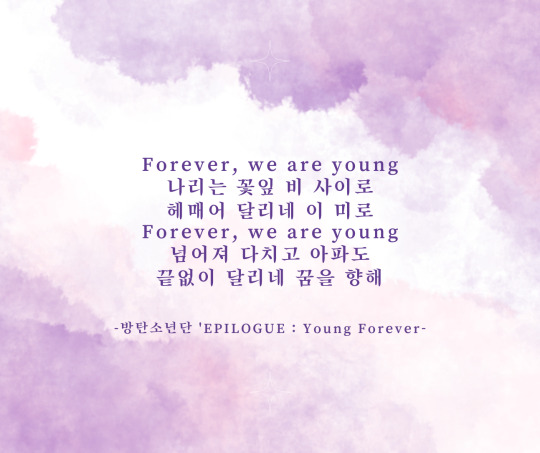
Forever, we are young 나리는 꽃잎 비 사이로 헤매어 달리네 이 미로 Forever, we are young 넘어져 다치고 아파도 끝없이 달리네 꿈을 향해 (Forever, we are young Through the falling flower petal rain I'm wandering around in the maze Forever, we are young Even if I fall, get hurt and in pain I'm running endlessly towards my dream.) -방탄소년단 'EPILOGUE : Young Forever- ✏️ 𝐕𝐨𝐜𝐚𝐛𝐮𝐥𝐚𝐫𝐲: 1. 나리다 (v): fall, descend (나리다 is dialectal form of 내리다) 2. 꽃잎 (n): petal, floral leaf 3. 비 (n): rain --> 꽃잎 비: rain of flower petals 4. 사이(n): gap; space between 5. 헤매다 (v): wander, move around, be lost --> 헤매어 (adv): wanderingly, in a wandering manner 6. 달리다 (v): run, race, dash 7. 미로 (n): maze, labyrinth 8. 넘어지다 (v): fall down, trip over, tumble over 9. 다치다 (v): be injured, be hurt 10. 아프다 (adj): hurting, aching 11. 끝없다 (adj): endless, infinite --> 끝없이 (adv): endlessly, infinitely 12. 꿈 (n): dream 13. 향하다 (v): go towards, direct (infinitive 향해) ✏️ 𝐆𝐫𝐚𝐦𝐦𝐚𝐫: 1. A/V-은/는/을 N grammar = N that A/V ~noun modifier E.g. 나리는 꽃잎 비 = the flower petal rain that is falling 2. N(으)로 – Towards, to, by, through, with 3. 고 = and ~ connecting particle 4. A/V-아/어도 grammar = even if, no matter how E.g. 아프다 --> 아파도 (Even if it hurts)* Note: Irregular Verbs ㅡ Irregular verbs and adjectives ending with ㅡ, ㅡ is omitted. The vowel that preceded ㅡ determined whether 아 or 어 is used in the ending. 예쁘다 (pretty) --> 예뻐요 아프다 ( sick) --> 아파요 5. V-네(요) = really, certainly ~ exclamatory suffix conveying a sudden realization
-
Kindly Visit My Blog Here
Available Products Here
Support me by buying Korean Writing Notebook Here
#Korean Language#Korean Lyrics#bts lyrics#young forever#Learn Korean#Study Korean#한국어능력시험#한국어 배우기#한국어 단어#한국어공부중#한국어#한국어공부해요#한국어공부하기#한국어 공부하기#한국어배우기#한국어배우#hangul#Korean Quotes#Korean Phrases
10 notes
·
View notes
